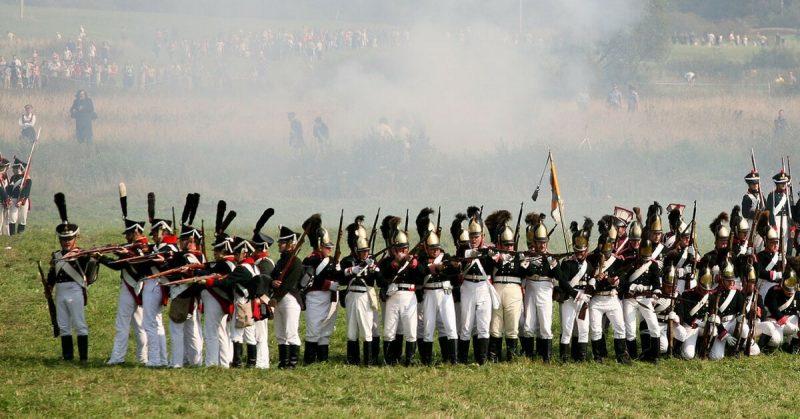On September 7, 1812, Napoleon Bonaparte defeated the Russian army at Borodino. It was the battle he had been seeking since invading Russia earlier in the year. It was also the bloodiest confrontation of his wars, with over 70,000 casualties.
The encounter did not bring Napoleon victory over Russia or the secure domination of Europe which he sought. Within three years, he would be utterly defeated and twice sent into exile.
Why did Borodino become a hollow victory for one of the greatest commanders in history?
The Russian Army Survived
Napoleon’s military strategy had always been heavily reliant upon the knock-out blow. By facing an enemy on the field of battle, he aimed to destroy their armies in a single decisive strike.
At Borodino, this did not happen.
The French had been heavily mauled by the end of the battle, and severe losses had left the army licking its wounds. There were not enough cavalry remaining to achieve an effective pursuit and destroy the retreating Russians.
Instead of fleeing with a broken army, the Russians assembled another 90,000 soldiers. They could fight on.
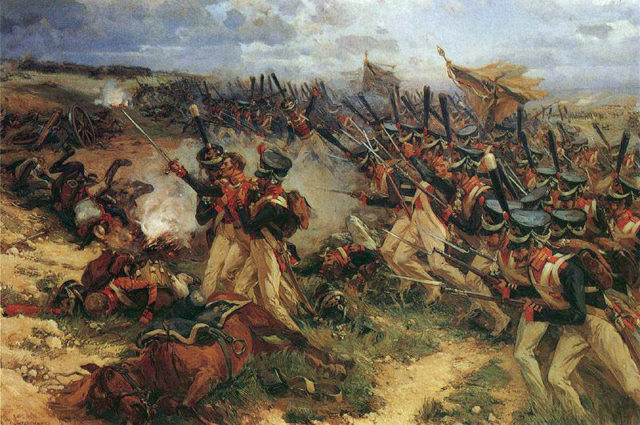
Heavy Losses
The French did not suffer as many casualties as the Russians at Borodino. Their losses amounted to 30-35,000 men, compared with 40-45,000 Russians.
Still, these were heavy losses. Inexperienced French troops had forced Napoleon to make extensive use of column formations. These were easier to march forward but more vulnerable to cannon fire, and the Russians made the most of the opportunity.
The Russians, fighting on their home ground, could replace their lost troops with relative ease. Napoleon could not. He was hundreds of miles from home. Even if he had been in France, he would have had a tough time, as years of warfare were running down the reserves of men who could be conscripted.
More significant were the losses in the officer corps. The French lost 14 lieutenant-generals and 33 major-generals. Two marshals were injured and a third succumbed to a bout of madness. Raising troops was difficult, but producing experienced officers could not be done from scratch.
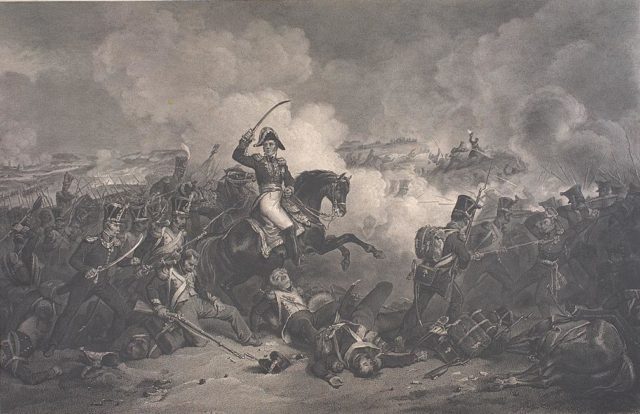
Razing Russia
The Russians made the most of Napoleon’s awkward position.
Fighting far from home, his supply lines extending across the length of Europe, Napoleon was reliant on local resources to supply his army. He needed to keep his troops fed, shoed, clothed, and in ammunition.
The Russians made this as difficult as they could for him. They razed the country in front of him, destroying their farmlands rather than letting supplies fall into French hands. When Napoleon reached Moscow, he found the city in flames at the hands of its inhabitants.
By refusing to meet the French in a stand-up fight and burning the countryside, the Russians ensured that Napoleon would struggle to supply his army.
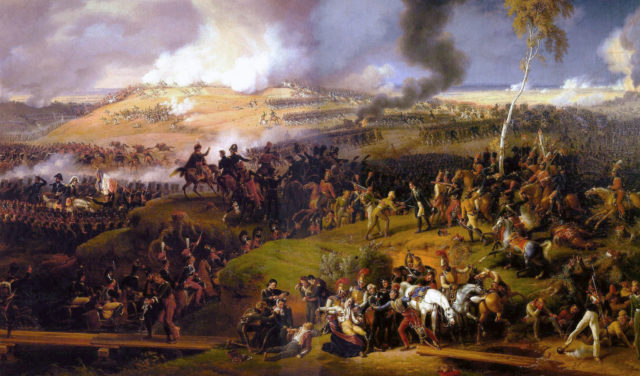
The Winter
Conditions deteriorated as the weeks passed and the Russian winter set in. The French were marching and fighting in the bitter cold. Most of them had never experienced such extreme weather. Under-nourished and under-clothed they were vulnerable. The soldiers’ bodies were eaten away by frostbite. Thousands died and had to be left behind as the army began its slow retreat west.
The Peninsula War
While Napoleon was fighting the Russians on his eastern front, the western flank of his empire was crumbling.
From the start, the occupation of Spain and Portugal had caused problems for the French. Locals resented the invaders and fought back with irregular warfare, coining the term “guerrilla,” meaning “little war.”
Then the British landed troops in Portugal. After an initial rocky start, Sir Arthur Wellesley was put in charge. A gifted commander, Wellesley worked with the Portuguese and Spanish to drive the French slowly back across the peninsula. While French troops still held parts of Spain in 1812, they were being pushed out. Wellesley’s success earned him the title Duke of Wellington.
A threat was coming for Napoleon from the west, using up resources and affecting the morale of his armies. Winning at Borodino in the East did nothing to help that.
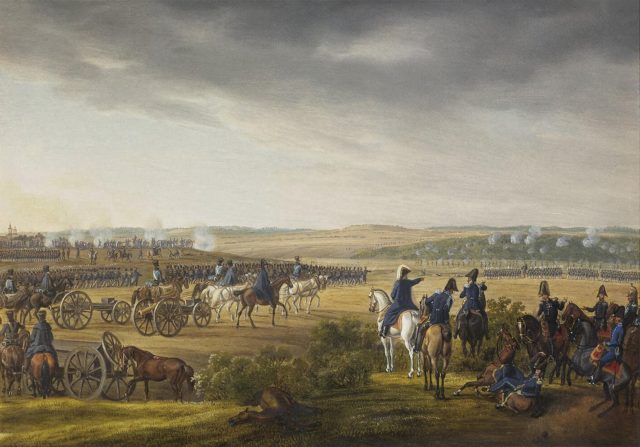
The Sixth Coalition
In 1812, Russia was allied with Britain and Sweden. The French march east proved the weakness of this alliance, as neither Britain nor Sweden provided the Russians with any assistance. However, the foundations were laid for a larger collaboration.
As Napoleon’s invasion of Russia faltered, the Prussians saw their chance. Previously defeated by France, they had been forced to support Napoleon in the invasion of Russia. Many Prussians balked at this and wanted to see their nation act as an independent power. In 1813, they defected from the French side, lining up with Russia.
Following an alliance between Sweden and Britain, the Swedes declared war on France.
Austria at first tried to negotiate peace between the two sides. Seeing which way the wind was blowing and spotting an opportunity to punish the French for earlier defeats, they too joined the coalition.
With Britain’s existing allies of Spain and Portugal and a few smaller German states, these nations formed the Sixth Coalition. It was the greatest alliance ever formed against Napoleon. With such resources mustered against him, his downfall came ever closer.
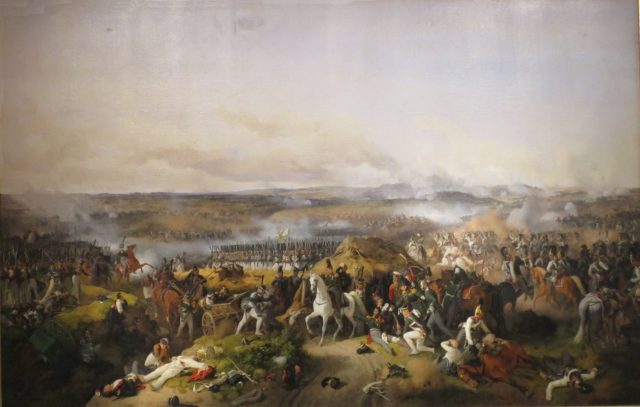
Napoleon’s Faltering Mind
Napoleon himself was faltering. The drive and mental agility that had once brought him success were fading. He was increasingly unwell, listless, and unwilling to commit to the risks he once had. It showed in his slowness to respond to opportunities at Borodino. It was also demonstrated by the way he used his troops there. For all his clever deployment, he had become reliant on charging large bodies of men into the mouths of guns, succeeding by weight of numbers as much as strategy.
He was not the commander he had once been, and now the odds were stacked against him. Borodino was a win, but it was one he could never build on.
Sources:
Alan Forrest (2011), Napoleon.
Robert Harvey (2006), The War of Wars: The Epic Struggle Between Britain and France: 1789-1815.
Alistair Horne (1996), How Far From Austerlitz? Napoleon 1805-1815.
